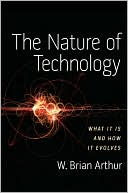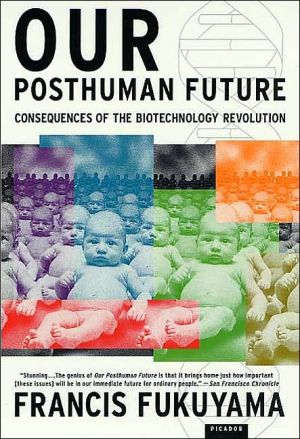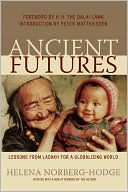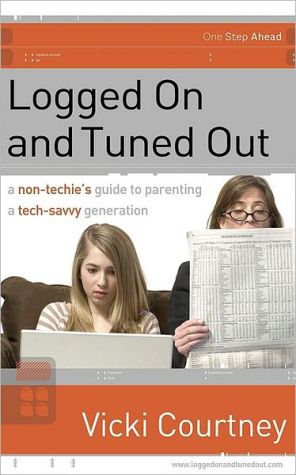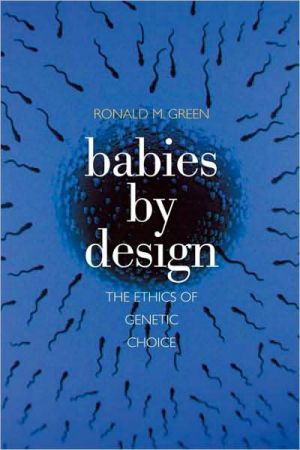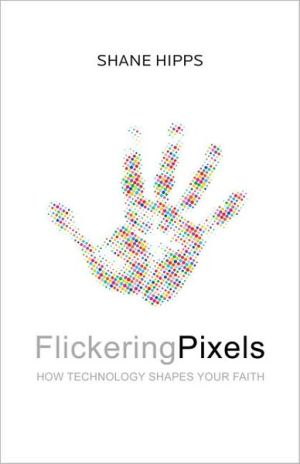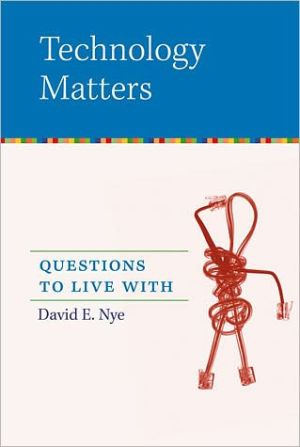Children of Choice: Freedom and the New Reproductive Technologies
Cloning, genetic screening, embryo freezing, in vitro fertilization, Norplant, RU486—these are the technologies revolutionizing our reproductive landscape. Through the lens of procreative liberty—meaning both the freedom to decide whether or not to have children as well as the freedom to control one's reproductive capacity—John Robertson, a leading legal bioethicist, analyzes the ethical, legal, and social controversies surrounding each major technology and opens up a multitude of fascinating...
Search in google:
"This book shows why John Robertson is correctly regarded as the leading legal theorist in the area of reproduction. On issues that have often brought extreme ideological responses from others, Robertson offers balanced, insightful, and persuasive analysis. There is not a better book on the ethical and legal issues of reproduction."--Dan W. Brock, Professor of Philosophy and Biomedical Ethics, Director, Center for Biomedical Ethics, Brown University"A valuable and coherent book that brings together an apparently disparate group of reproductive technologies and practices through the examination of the principle of procreative liberty."--Robert D. Goldstein, UCLA School of Law Journal of the American Medical Association This book is a valuable boost to the perpetual effort of society to overtake and accommodate new technology, specifically that affecting reproduction. . . . A review cannot do justice to the tightly constructed arguments, the endnotes that answer questions that pop into the reader's mind after a particularly controversial viewpoint is advanced, and the myriad case citations that address prior efforts to deal with these issues. . . . Professor Robertson has produced in his characteristic way a well-referenced evaluation that is consistent and coherent although not without controversy.
PrefaceCh. 1Introduction: Technology, Liberty, and the Reproductive Revolution3Ch. 2The Presumptive Primacy of Procreative Liberty22Ch. 3Abortion, Contragestion, and the Resuscitation of Roe v. Wade45Ch. 4Norplant, Forced Contraception, and Irresponsible Reproduction69Ch. 5IVF, Infertility, and the Status of Embryos97Ch. 6Collaborative Reproduction: Donors and Surrogates119Ch. 7Selection and Shaping of Offspring Characteristics: Genetic Screening and Manipulation149Ch. 8Preventing Prenatal Harm to Offspring173Ch. 9Farming the Uterus: Nonreproductive Uses of Reproductive Capacity197Ch. 10Class, Feminist, and Communitarian Critiques of Procreative Liberty220Notes237Index279
\ New ScientistRobertson is quite good at explaining in advance the order of his arguments; and he provides a comprehensive account of different available methods of contraception, of the various possible treatments either for the remedying of infertility or for allowing single men or women, whether infertile or not, to have children, as well as discussing genetic manipulation.\ — Mary Warnock\ \ \ \ \ BooklistRobertson surveys the available reproductive techniques and options, from abortion and contraception to the various ways of reproducing and of screening for suitable characteristics. The individual and societal conflicts are presented for each option, with Robertson generally arguing in favor of freedom of choice. Should be of interest to students of society as well as the many prospective users of these technologies.\ \ \ Sunday TelegraphEven if one disagrees with the particular answers which John Robertson gives to the ethical questions raised by the new technology, his book is nonetheless to be welcomed.\ — Anthony Daniels\ \ \ \ \ Washington Times. . . appropriate for students of ethics or anyone else interested in the moral, legal and policy implications of the advances in reproductive technology. . . . Its value lies in its willingness to present all the arguments, leaving the reader to ponder the ethical dilemmas and perhaps come up with some solutions.\ \ \ \ \ New England Journal of MedicineRobertson charts an ethical and legal course through the questions and concern posed by the reproductive techniques that are now available. . . . [He] weaves his way through a tangle of fascinating and often disturbing issues. . . . Children of Choice is indispensable for anyone caring for women, couples, or families—anyone who reaches out for guidance in making reproductive choices. It would also be valuable to women or couples contemplating abortion or the use of infertility services. . . . Well referenced and annotated, this clear and thought-provoking book demands a careful reading. It provides rich legal and ethical insights that will challenge and shape one's personal beliefs and professional ethics.\ — Dilys M. Walker\ \ \ \ \ Los Angeles Times Book ReviewShould parents have the right to 'control offspring quality' through genetic screening and manipulation? Should frozen embryos be legally protected? In what ways? How would the introduction of RU486, the 'abortion pill,' change abortion in America? Bioethicist John Robertson tackles these difficult questions and many more in Children of Choice, a comprehensive look at the issues surrounding reproduction in a technological age. . . . a flawlessly researched, thoughtful book.\ \ \ \ \ Journal of the American Medical AssociationThis book is a valuable boost to the perpetual effort of society to overtake and accommodate new technology, specifically that affecting reproduction. . . . A review cannot do justice to the tightly constructed arguments, the endnotes that answer questions that pop into the reader's mind after a particularly controversial viewpoint is advanced, and the myriad case citations that address prior efforts to deal with these issues. . . . Professor Robertson has produced in his characteristic way a well-referenced evaluation that is consistent and coherent although not without controversy.\ \ \ \ \ ChoiceRobertson offers the reader a balanced analysis on most reproductive concerns that confront physicians, lawyers, and the general public. . . . [His] broad knowledge makes this a strong book to help people understand these new ethical and legal frontiers.\ \ \ \ \ The New England Journal of MedicineRobertson's ... confrontational style takes the reader to the limits of the possible and beyond, to the extraordinary repercussions of reproductive techniques. This clear and thought-provoking book ... provides rich legal and ethical insights that will challenge and shape one's personal beliefs and professional ethics.\ — Dilys M. Walker, M.D.\ \ \ \ \ The New England Journal of MedicineRobertson charts an ethical and legal course through the questions and concern posed by the reproductive techniques that are now available. . . . [He] weaves his way through a tangle of fascinating and often disturbing issues. . . . Children of Choice is indispensable for anyone caring for women, couples, or families—anyone who reaches out for guidance in making reproductive choices. It would also be valuable to women or couples contemplating abortion or the use of infertility services. . . . Well referenced and annotated, this clear and thought-provoking book demands a careful reading. It provides rich legal and ethical insights that will challenge and shape one's personal beliefs and professional ethics.\ \ \ \ \ New ScientistRobertson is quite good at explaining in advance the order of his arguments; and he provides a comprehensive account of different available methods of contraception, of the various possible treatments either for the remedying of infertility or for allowing single men or women, whether infertile or not, to have children, as well as discussing genetic manipulation.\ \ \ \ \ Sunday TelegraphEven if one disagrees with the particular answers which John Robertson gives to the ethical questions raised by the new technology, his book is nonetheless to be welcomed.\ \ \ \ \ Sunday TelegraphEven if one disagrees with the particular answers which John Robertson gives to the ethical questions raised by the new technology, his book is nonetheless to be welcomed.\ — Anthony Daniels""\ \ \ \ \ New England Journal of MedicineRobertson charts an ethical and legal course through the questions and concern posed by the reproductive techniques that are now available. . . . [He] weaves his way through a tangle of fascinating and often disturbing issues. . . . Children of Choice is indispensable for anyone caring for women, couples, or families—anyone who reaches out for guidance in making reproductive choices. It would also be valuable to women or couples contemplating abortion or the use of infertility services. . . . Well referenced and annotated, this clear and thought-provoking book demands a careful reading. It provides rich legal and ethical insights that will challenge and shape one's personal beliefs and professional ethics.\ — Dilys M. Walker\ \ \ \ \ Library JournalProcreative freedom is ``the freedom to decide whether or not to have offspring and to control the use of one's reproductive capacity.'' Robertson, a legal bioethicist who teaches at the University of Texas at Austin's law school, argues that the principle of procreative liberty should be used to determine the ethics and legalities of the many controversial issues surrounding reproductive technology. While obviously favoring his procreative liberty approach, the author allows some discussion of conflicting viewpoints. Robertson's position may not be universally accepted, but his works are regularly cited and his perspective is given significant coverage in many books on this topic. In addition to the much-discussed issues of abortion and surrogacy, Robertson also discusses new issues such as fetal tissue transplants and prenatal genetic screening. While the basic technological facts in this book may become dated, the legal philosophy presented may serve as a foundation for future considerations. Highly recommended for academic and special libraries.-Tina Neville, Univ. of South Florida at St. Petersburg Lib.\ \

